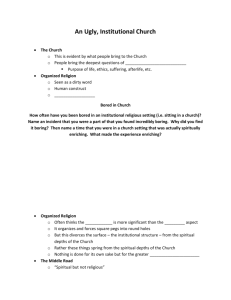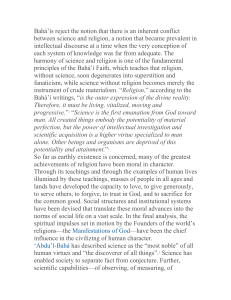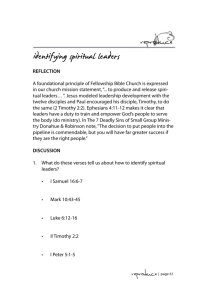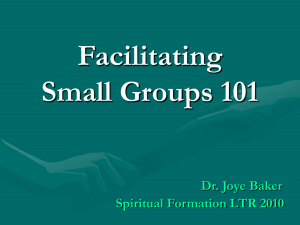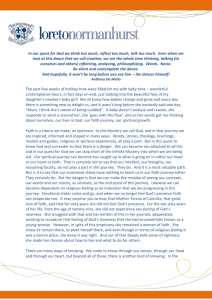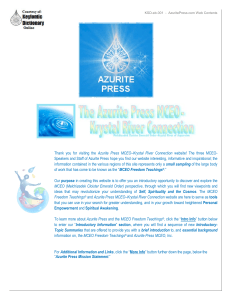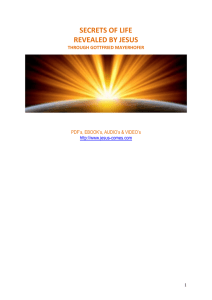First Principles
advertisement
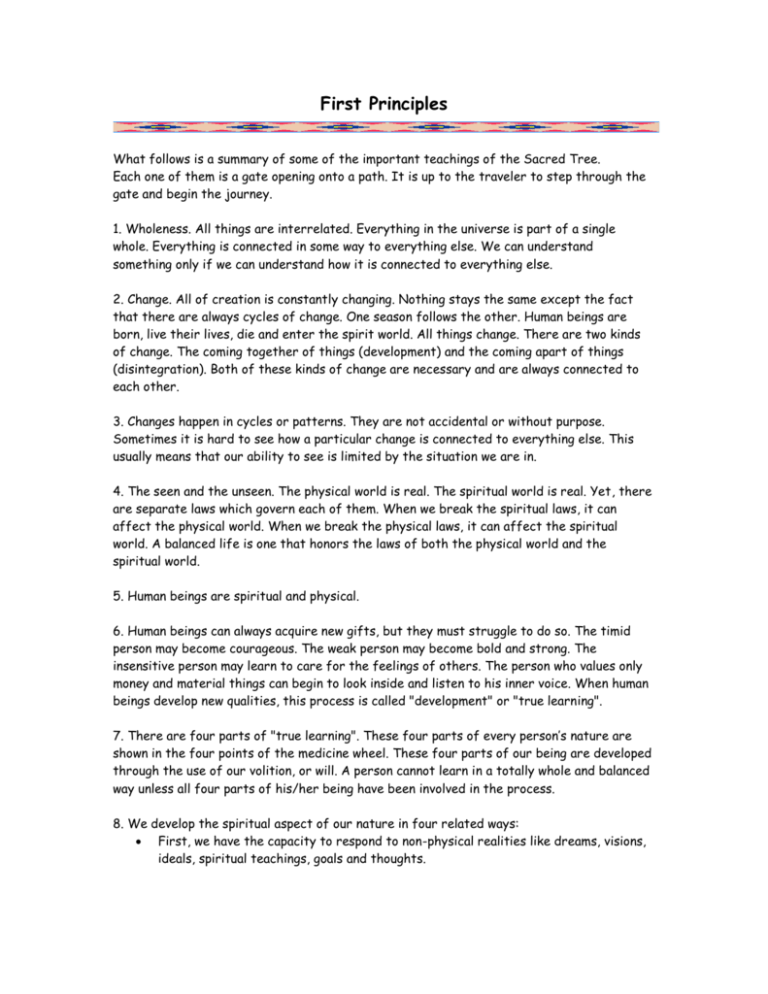
First Principles What follows is a summary of some of the important teachings of the Sacred Tree. Each one of them is a gate opening onto a path. It is up to the traveler to step through the gate and begin the journey. 1. Wholeness. All things are interrelated. Everything in the universe is part of a single whole. Everything is connected in some way to everything else. We can understand something only if we can understand how it is connected to everything else. 2. Change. All of creation is constantly changing. Nothing stays the same except the fact that there are always cycles of change. One season follows the other. Human beings are born, live their lives, die and enter the spirit world. All things change. There are two kinds of change. The coming together of things (development) and the coming apart of things (disintegration). Both of these kinds of change are necessary and are always connected to each other. 3. Changes happen in cycles or patterns. They are not accidental or without purpose. Sometimes it is hard to see how a particular change is connected to everything else. This usually means that our ability to see is limited by the situation we are in. 4. The seen and the unseen. The physical world is real. The spiritual world is real. Yet, there are separate laws which govern each of them. When we break the spiritual laws, it can affect the physical world. When we break the physical laws, it can affect the spiritual world. A balanced life is one that honors the laws of both the physical world and the spiritual world. 5. Human beings are spiritual and physical. 6. Human beings can always acquire new gifts, but they must struggle to do so. The timid person may become courageous. The weak person may become bold and strong. The insensitive person may learn to care for the feelings of others. The person who values only money and material things can begin to look inside and listen to his inner voice. When human beings develop new qualities, this process is called "development" or "true learning". 7. There are four parts of "true learning". These four parts of every person’s nature are shown in the four points of the medicine wheel. These four parts of our being are developed through the use of our volition, or will. A person cannot learn in a totally whole and balanced way unless all four parts of his/her being have been involved in the process. 8. We develop the spiritual aspect of our nature in four related ways: First, we have the capacity to respond to non-physical realities like dreams, visions, ideals, spiritual teachings, goals and thoughts. Second, we have the capacity to understand that these non-physical realities can teach us about our own potential to do or be something more, or different, than we are now. Third, we have it within us to express these dreams, visions, ideals, spiritual teachings, and our own goals and thoughts by using symbols like language, mathematics and the arts. Fourth, we have the capacity to use these symbols to guide our future actions. These actions will make it possible for us to "enter into" the vision, or goal we have set before ourselves in the form of symbols, and thus develop our true potential. 9. We must become actively involved in the process of developing our own potential. 10. The doorway through which all must pass if they wish to become more or different that they are now, is the doorway of the will (volition). A person must decide to take the journey. The path has never-ending patience. It will always be there for those who decide to travel it. 11. Anyone who sets out on a journey of self-development will be helped. There will be guides and teachers who will appear, and spiritual protectors who will watch over the traveller. No test will be given that the traveller does not already have the strength to meet. 12. The only way to fail on the journey will be our own failure to follow the teachings of the Sacred Tree Source: (The Four Worlds Development Project, 1988, pp. 27-32. Reprinted with permission from the Four Worlds International Institute for Human and Community Development.) Evergreen Curriculum, http://www.sasked.gov.sk.ca/docs/native10/Unit_1_IWAP.html#IWAP11

